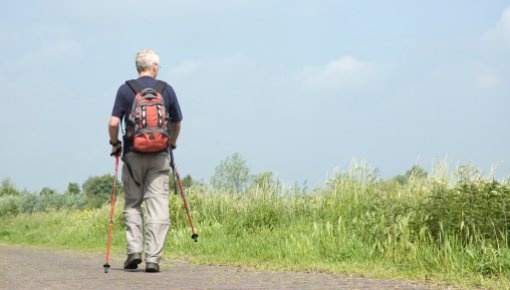My priorities have changed
My family wasn’t as understanding about my diagnosis as I’d hoped. That’s maybe because an eye disease isn’t something other people can see and understand, like a broken leg or something. I feel like there’s a huge difference between experiencing an eye condition yourself and only knowing about it in theory.
My priorities in life changed after the diagnosis. I used to think my career was really important and I worked a lot. The diagnosis made me think differently about myself and how I want to live my life.
I used to play tennis and go jogging in my spare time. I couldn’t really do that anymore with the glaucoma. I've started doing other types of activities instead, like less intensive forms of Nordic Walking and strength exercises. Staying active was really important for me! Then later I started doing a lot of things to help me relax, like yoga, meditation, breathing exercises, etc. That really helps.

